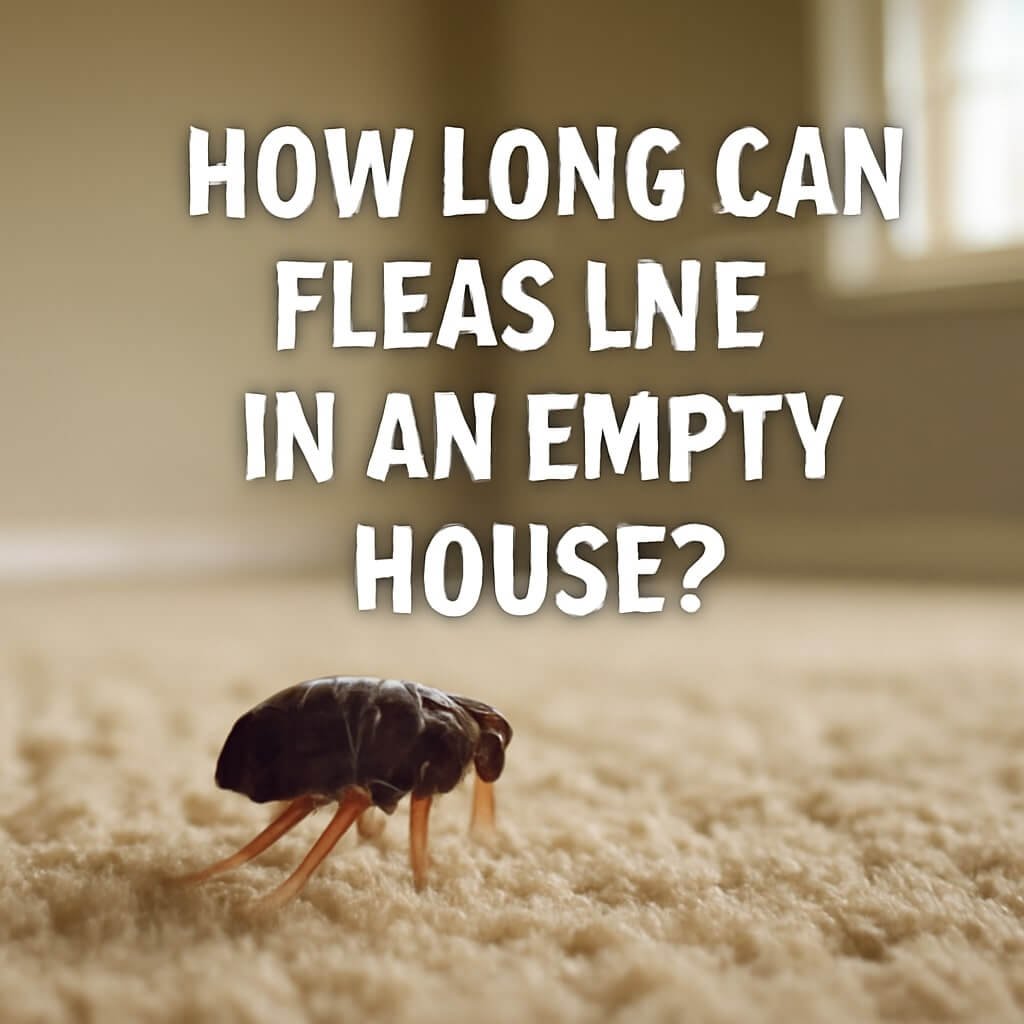Fleas are tiny, resilient pests that can cause discomfort and health concerns for both humans and pets. Understanding how long fleas can live in an empty house is vital for effective pest control, especially when a home has been vacant for a while. This information helps determine how persistent flea infestations can be and guides homeowners on prevention and treatment strategies.
Flea Life Cycle and Biology
Fleas undergo a four-stage life cycle: egg, larva, pupa, and adult. Adult fleas feed on blood, primarily from pets, while immature stages live in carpets, bedding, and cracks. The entire cycle can take anywhere from two weeks to several months, depending on environmental conditions.
Flea Survival Without a Host
How Long Can Fleas Live Without Feeding?
Adult fleas typically survive only a few days to two weeks without a host to feed on. However, flea pupae can remain dormant for months in their cocoon until they sense vibrations, heat, or carbon dioxide, signaling a host’s presence.
Influence of Temperature and Humidity
Warm, humid environments accelerate flea development and survival, while cold, dry conditions can reduce their lifespan. Fleas are less likely to survive long periods in empty, cold houses.
Flea Eggs, Larvae, and Pupae Survival in Empty Homes
Flea eggs and larvae can survive for several weeks in carpets or cracks, but are vulnerable to desiccation. Pupae are the toughest stage, potentially surviving up to 6 months in cocoons, waiting for favorable conditions to emerge.
Typical Flea Survival Time in Vacant Houses
In an empty house, adult fleas may die quickly without hosts, but pupae can persist for months. Overall, flea infestations can survive anywhere from a few weeks to 6 months, depending on the environment and presence of hosts.
Signs of Flea Infestation in Empty Houses
- Flea bites on people or pets when present
- Flea dirt (tiny black droppings) on carpets or furniture
- Visible jumping fleas or larvae in rugs and cracks
Health Risks and Concerns of Fleas
Fleas cause itchy bites, allergic reactions, and can transmit diseases like murine typhus and tapeworms. Managing infestations promptly is crucial for health.
Effective Flea Removal Methods in Empty Homes
- Vacuuming thoroughly and frequently to remove eggs and larvae
- Washing bedding and fabrics in hot water
- Using insecticides and flea growth regulators applied by professionals
- Applying heat treatments where feasible
Preventing Flea Reinfestation
- Treat pets regularly with veterinarian-approved flea preventatives
- Maintain clean living areas and reduce clutter
- Seal entry points to prevent wild animals and pests from carrying fleas
Frequently Asked Questions (FAQs)
1. Can fleas survive a year without a host?
Do fleas die in cold, empty houses?
How long can flea pupae survive indoors?
Can flea eggs hatch without pets present?
Are DIY flea treatments effective in empty homes?
6. How soon after treatment is a home flea-free?
Conclusion: Keeping Your Empty Home Flea-Free
Knowing how long fleas can live in an empty house helps you plan for effective pest control. While adult fleas die quickly without hosts, flea pupae can persist for months, making thorough cleaning and professional treatment essential. Staying vigilant and taking preventive steps ensures a flea-free home.




